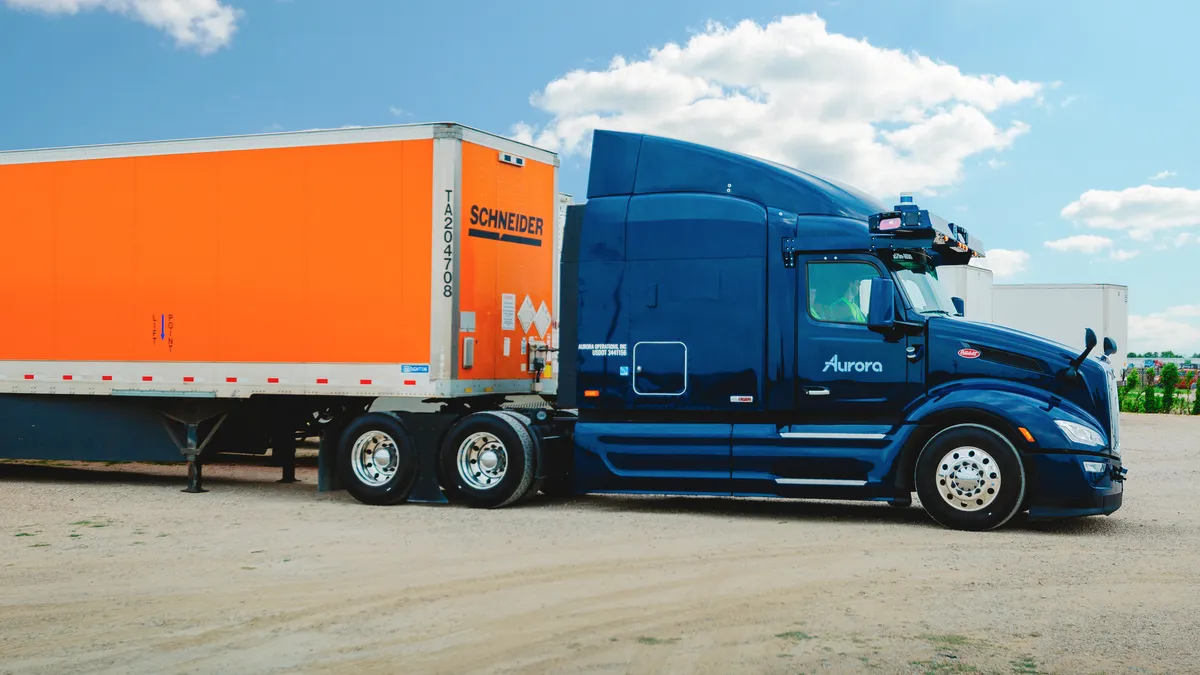Dive Brief:
- Aurora Innovation began hauling freight last week for Schneider National customers, becoming the autonomous trucking startup’s fourth commercial partnership.
- The weekly autonomous drives run between Dallas and Houston with safety operators on board. Aurora expects to increase the frequency of the drives as the partnership continues.
- With the addition of the Schneider pilot, Aurora now completes 14 loads a week for its commercial partners, including FedEx, Werner and Uber Freight. The company is planning a commercial launch for 2024.
Dive Insight:
The announcement of Aurora's partnership with Schneider came days before Aurora’s Q2 earnings updates, which highlighted the AV startup's push for technology breakthroughs on the way to commercialization.
The company doubled its commercial miles driven over the last quarter, according to its Q2 shareholder letter, helping it to gather more real-time data on the progress of its autonomous driving platform.
During pilot runs like those driven for Schneider, a closed loop system sends feedback from the trucks' safety drivers to Aurora's engineering team for feedback. For example, recent pilot runs are focusing on gathering feedback on complex surface street maneuvers and engine braking on long downhill grades, a company representative said in an email.
"We believe the strength of these customer relationships position us for an effective driverless launch when our technology is sufficiently mature to meet our rigorous safety standards and the requisite truck platforms are ready," Aurora CEO and co-founder Chris Urmson said in the shareholder letter.
Aurora has focused on gathering this data through the establishment and expansion of pilot programs this year, particularly in Texas. In April, it added its partnership with Werner, and in May Aurora expanded its partnership with FedEx, both of which use the startup's Fort Worth to El Paso route.
The addition of the Schneider partnership is one facet of Aurora’s overall plan to reach specified technology milestones it says it needs to hit before commercialization. Its “roadmap” to commercialization includes adding seven new driving capabilities over the next three quarters, as well as 40 loads per week by Q1 2023.
For example, in the Q3 of 2022, Aurora will focus on better responding to road debris and detecting lane markings that have shifted due to construction.
“Remaining laser-focused on our plan and executing on what we can control is imperative in the current environment,” Urmson said in the letter.













